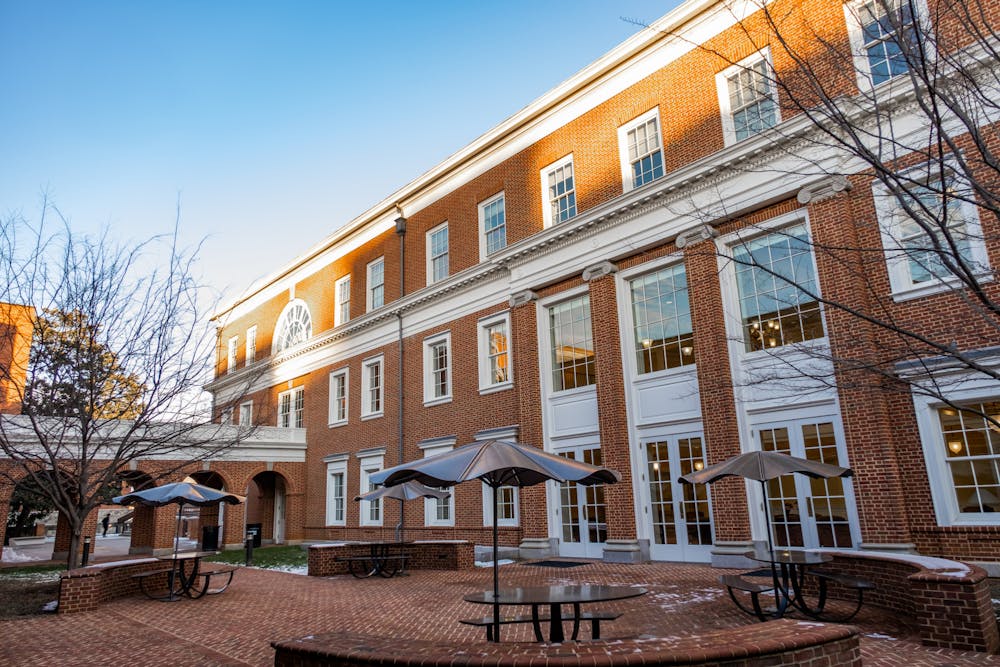The School of Education and Human Development created a new Education Specialist degree program that will lead graduates into careers as certified school psychologists. The graduate degree is designed to address a national and statewide shortage of individuals who are qualified to work in this capacity. The program is currently reviewing applications for an initial Fall 2024 cohort of five students.
For years, the National Association of School Psychologists has been tracking the growing number of K-12 students for every one school psychologist, as the amount of new graduates entering the profession are not meeting the current demand. Virginia specifically has a vacancy rate for school psychologist positions of just under 12 percent.
Katy Zeanah, the interim degree coordinator in the School Psychology program, says the program is looking for students who are interested in the intersection of education and mental health. She said students should also be interested in prevention plans based on environmental factors that could be influencing a student's mental health.
“We really need to step back and sort of catch [mental health issues] earlier,” Zeanah said. “And school psychologists have a lot of training in systems work and prevention of mental health concerns, as well as prevention of academic difficulties among students”
According to the National Association of School Psychologists, shortages in school psychologists stem from various factors, including a lack of diversity among graduate faculty and internship supervisors as well as an insufficient number of positions within certain districts. The repercussions of these shortages hinder school psychologists from offering preventive and early intervention services, regular consultations with families and teachers and limiting access to mental and behavioral health services for students who need support.
The new school psychologist program is a total of three years, where the first two years focus on coursework on foundational skills and the third year consists of an internship where students will work full-time for a Virginia school.
The new curriculum covers content based on developing evidence-based interventions to support mental and behavioral health. In addition, students will learn skills such as how to interpret standardized tests to gain a better understanding of students’ behavioral and academic functioning. During the first two years of the program, students will also be placed in a school working alongside a school psychologist a couple days a week to apply skills taught in the classroom.
Michael Lyons, associate professor and director of clinical and school psychology in the School of Education, described how the program works to comprehensively train future school psychologists and bridge the gap between practitioners and students.
“The context for the program is that school psychologists support students,” Lyons said. “K-12 students [have all kinds of behavioral health] needs in schools, as well as students who are suspected or identified as having some disabling condition like autism, learning disabilities and developmental disabilities.”
Youth mental health issues have been increasing throughout the years, with a spike in cases since COVID-19. While rates of mental health conditions in K-12 students have grown, the number of school psychologists has decreased, causing a surge of unmet needs especially for students in marginalized communities and rural areas.
According to Zeanah, by collaborating with teachers and families, school psychologists contribute significantly to designing tailored preventative and interventionist programs that cater to the specific needs of students and promote mental well-being within the community.
“[School psychologists] play a really important role in assessing and identifying students with those disabilities, and then working closely with teachers [and] families to design programming that meets those students' needs,” said Lyons.
School psychologists not only provide personalized interventions to students, they also serve as individuals in schools who understand systemic factors that affect students’ behavior and mental health, which is just as critical according to Zeanah.
“What are the systemic factors that are going on?” Zeanah said. “How can we think about this from more of a prevention standpoint, rather than just you know, trying to provide individual support to every student?”
The School of Education’s new program highlights the importance of collaboration in school psychology, particularly with school staff, families and students by building meaningful relationships. According to Zeanah, a commitment to working with diverse student bodies — encompassing considerations of race, ethnicity, disabilities, cultural backgrounds, age, grade levels and variations in rural and urban settings — is crucial for success in the program.
As a new curriculum, the School Psychology program is only accepting a small number of students but aims to increase class sizes to ten students after the first couple of years. Applications for the fall semester are due Feb. 1.







